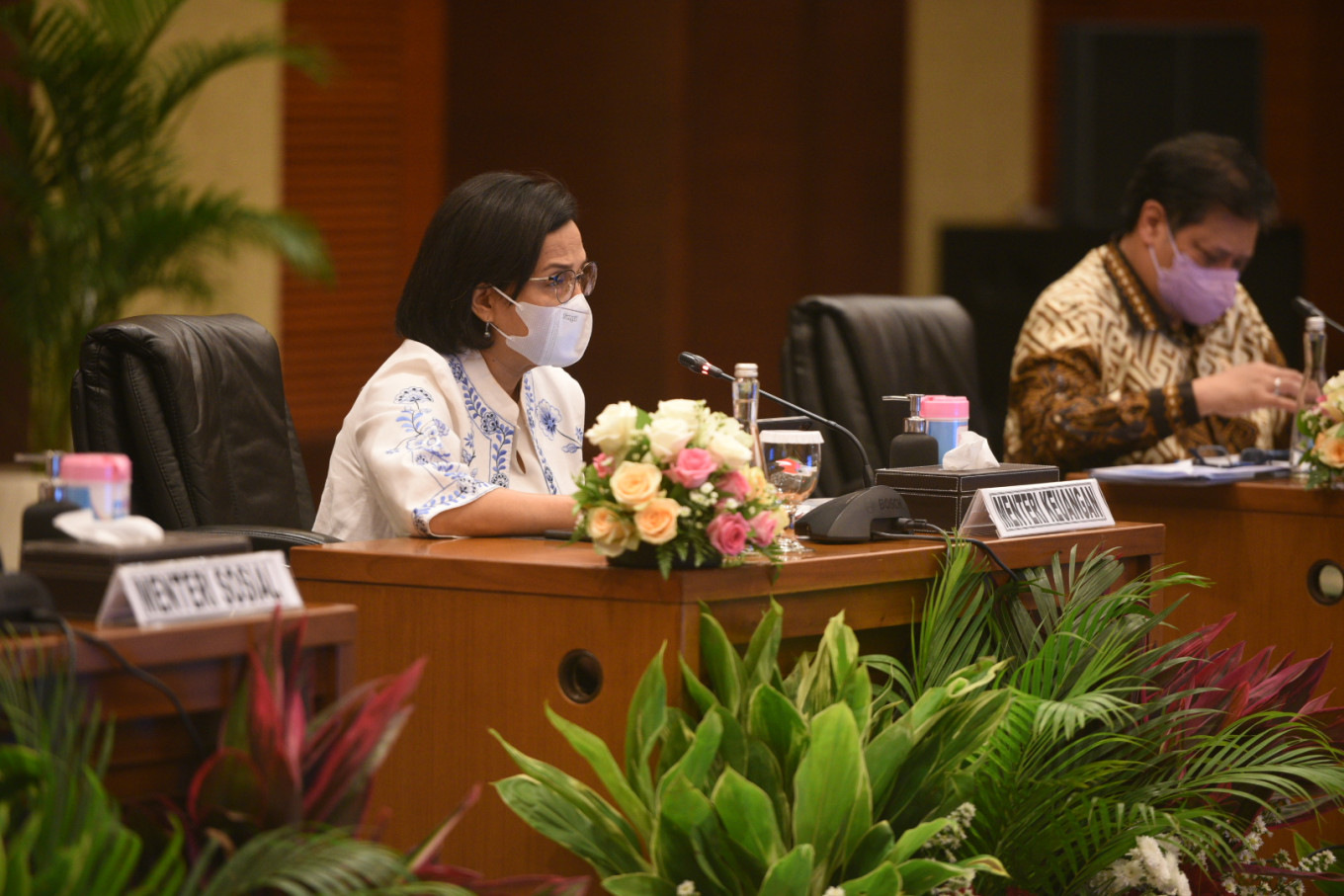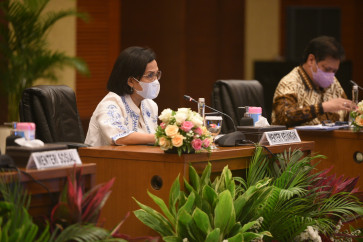Popular Reads
Top Results
Can't find what you're looking for?
View all search resultsPopular Reads
Top Results
Can't find what you're looking for?
View all search resultsThe 2022 budget: Stay the course for growth
Staying the course in fundamental reforms is essential to fiscal stability and growth.
Change text size
Gift Premium Articles
to Anyone
N
ow that the House of Representatives has passed the 2022 state budget, the principal question is: Can the nation afford it? Will it lead to inflation or to an eventual fiscal crisis, or is it within reasonable bounds?
As the world braces for the annual meetings of the World Bank and the International Monetary Fund (IMF), some good news from recently published papers (IMF, 2021; University of Indonesia and National Development Planning, 2020) show that the country’s fiscal policies for the post-pandemic era are on track, and that Indonesia is in a much better condition to achieve fiscal sustainability than many other countries in both the developing and developed worlds.
Indonesia’s budget deficit is projected to stand at Rp 868 trillion (US$62 billion) in 2022, or 4.85 percent of gross domestic product (GDP). This is a significant drop from 6.14 percent in 2020 and the expected 5.8 percent this year. It is clearly possible that Indonesia can achieve the 3 percent budget deficit in 2023 as mandated by Law 2/2020, issued when Indonesia began its COVID-19 fiscal stimulus program.
Total debt at the end of July amounted to Rp 6.57 quadrillion, with a debt-to-GDP ratio of 40.51 percent. This is an increase of around Rp 15.61 trillion compared to June. Government bonds (SBN) still dominated the debt composition in July 2021 with Rp 5.72 quadrillion, or 87.18 percent of total debt.
In addition, the finance minister and the Bank Indonesia (BI) governor issued a joint decree in August that allowed active participation in the purchase of SBN in the primary market. The amount of SBNs issued in 2021 totaled Rp 215 trillion and in 2022, the figure will reach Rp 224 trillion. BI participation is in the form of contributing to all interest costs for financing vaccinations and health care with a maximum limit of Rp 58 trillion for 2021 and Rp 40 trillion for 2022.
On top of this, Indonesia expects higher state revenues of Rp 1.85 quadrillion, not only from the return of economic growth, but more importantly from tax reforms through the recently enacted Harmonized Tax Law, whichwill aid collection and compliance while capturing more revenue.
Linking fiscal policy to structural reforms, including tax reforms, is wise.


















